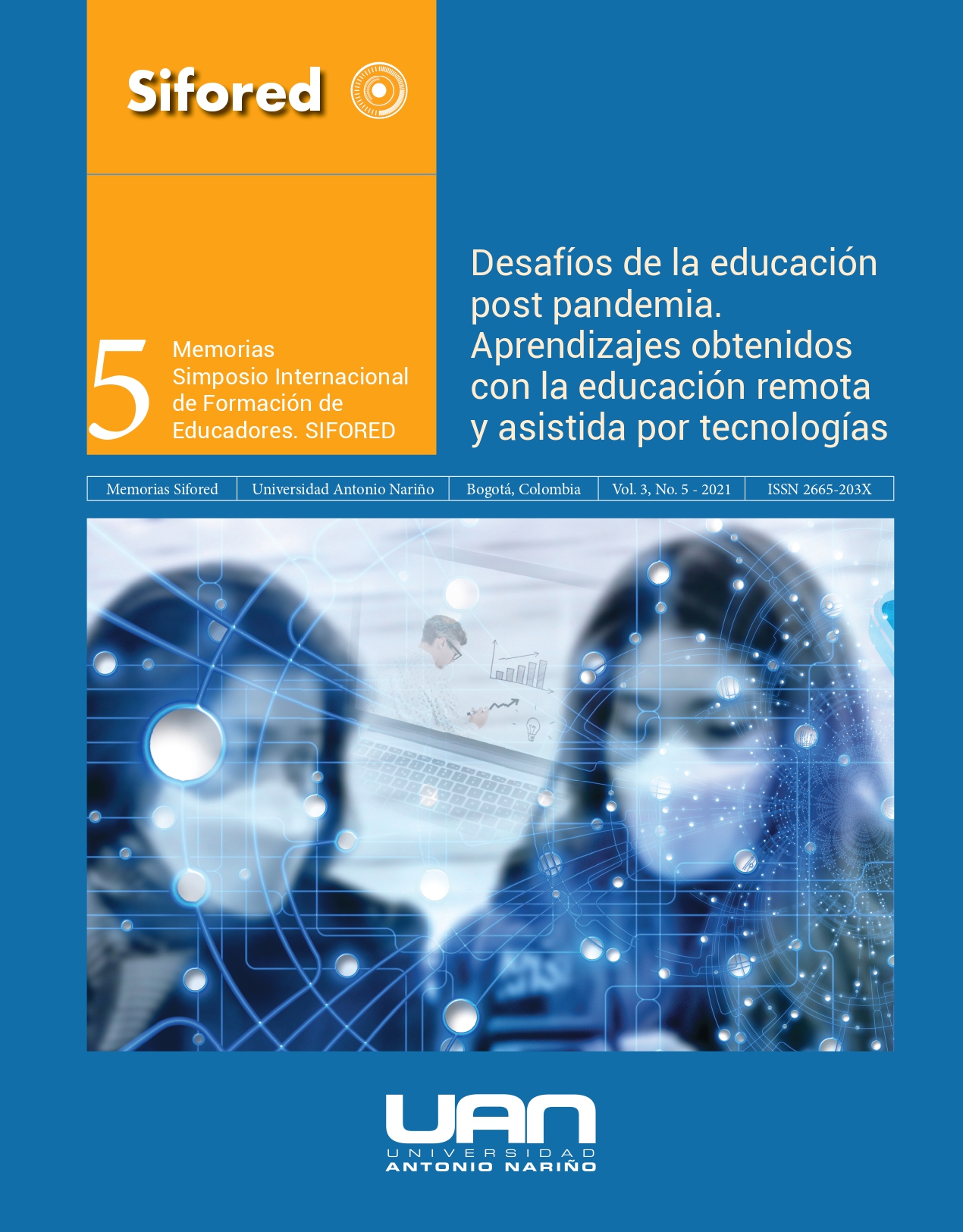Orientaciones pedagógicas que enriquezcan las prácticas evaluativas universitarias desde TIC y Ludoevaluación
Palavras-chave:
innovación, evaluación, ludoevaluación, TIC, Educación superiorResumo
En el presente escrito se proponen orientaciones pedagógicas vinculadas con el diseño, desarrollo y evaluación de experiencias enriquecidas con la Ludoevaluación, una estrategia alternativa a la evaluación tradicional, que aprovecha las bondades que brindan las Tecnologías de la Información y Comunicación (TIC) y los principios pedagógicos de la Ludoevaluación. Esta idea surge debido a que en la educación superior se hace evidente que aún persiste el desarrollo de prácticas evaluativas centradas en calificar y categorizar a los estudiantes, por lo que se hace necesario resignificar las estrategias técnicas arraigadas y regresar la mirada al sentido formativo y gratificante de la evaluación formativa. Es por ello por lo que se reconoce el potencial de transformación que las TIC pueden generar frente a las metodologías evaluativas. La investigación se enmarca metodológicamente desde un enfoque cualitativo y emplea varias de las etapas que estructuran los modelos de diseño instruccional ADDIE y ASSURE. Al finalizar este estudio, se logra como resultados la construcción de orientaciones pedagógicas a considerar desde el ámbito teórico, pedagógico, metodológico y técnico para experiencias ludoevaluativas con potencial para implementarse como apoyo a los procesos evaluativos universitarios.
Downloads
Referências
Belloch, C. (2013). Modelos de Diseño Instruccional [mensaje en un blog]. Recuperado el 1 de febrero de 2017, a partir de http://www.uv.es/bellochc/pedagogia/EVA4.wiki?1
Borjas, M. (2013). La ludoevaluación en la Educación Infantil. Más que un requisito, un asunto serio. Colombia: Universidad del Norte
Borjas, M., Astorga, C. y Cruz, P. (2018). La vieja visión de la nueva evaluación: Contradicciones de la evaluación en el siglo XXI. Revista ESPACIOS, 39(17), 1. Recuperado de http://w.revistaespacios.com/a18v39n17/18391701.html#uno Castillo, S. y Cabrerizo, J. (2010). Evaluación educativa de aprendizajes y competencias. Madrid: Pearson Educación
Gil, J. (2012). La evaluación del aprendizaje en la Universidad según la experiencia de los estudiantes. Estudios sobre Educación, 22, 133-153. Recuperado de http://dadun.unav.edu/bitstream/10171/22636/2/ESE22-07-Gil-Flores.pdf Hernández, R., Fernández, C. & Baptista, P. (2014). Metodología de la investigación. México: McGraw-Hill.
Hamodi, C., López, V. y López, A. (2015). Medios, técnicas e instrumentos de evaluación formativa y compartida del aprendizaje en educación superior. Perfiles educativos, 37(147), 146-161. Recuperado el 1 de febrero de 2017, a partir de http://www.scielo.org.mx/pdf/peredu/v37n147/v37n147a9.pdf Lukas, J, y Santiago, K. (2014). Evaluación educativa. Recuperado de http://site.ebrary.com/lib/unortesp/reader.action?docID=11028733 Ministerio de Educación Nacional. (2013). Competencias TIC para el Desarrollo Profesional Docente. Recuperado el 8 de febrero de 2017, a partir de http://www.colombiaaprende.edu.co/html/micrositios/1752/articles-318264_recurso_tic.pdf Rueda, M. (2013). La evaluación educativa: análisis de sus prácticas. México: UNAM. Recuperado el 1 de febrero de 2017, a partir de https://books.google.com.mx/books?id=IJcos6TQn3IC&printsec=frontcover&hl=es&source=gbs_ge_summary_r&cad=0#v=onepage&q&f=falseSánchez Sánchez, T. (2013). La evaluación educativa como dispositivo de constitución de sujetos. Revista Latinoamericana de Ciencias Sociales, Niñez y Juventud, 11(2), 755-767. Recuperado el 1 de febrero de 2017, a partir de http://www.redalyc.org/pdf/773/77329818021.pdfTague
Vargas, I. (2012). La entrevista en la investigación cualitativa: nuevas tendencias y retos. Revista calidad de educación superior, 3(1), 119-139.Recuperado el 01 de febrero de 2017. Recuperado de enhttp://investiga.uned.ac.cr/revistas/index.php/revistacalidad/article/view/436/331
Downloads
Publicado
-
Resumo651
-
PDF (Español)93
Como Citar
Edição
Seção
Licença

Este trabalho está licenciado sob uma licença Creative Commons Attribution-NonCommercial-ShareAlike 4.0 International License.


 Portal de Ciencia Abierta
Portal de Ciencia Abierta